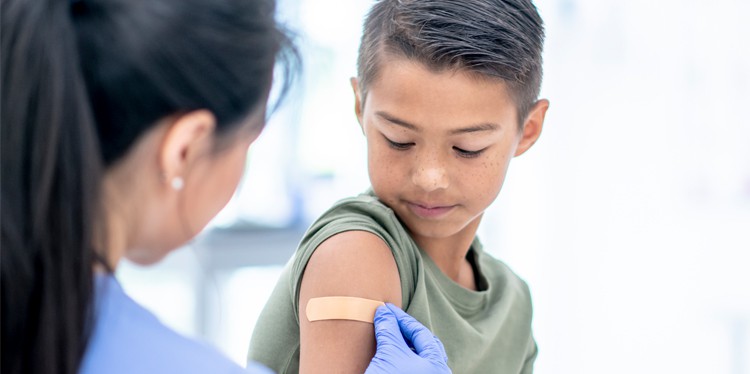Why are childhood vaccines so important?

As we emerge from this COVID haze, it is a great time to get your children caught up on their routine immunizations. If your child is eligible for a COVID-19 vaccine (currently, those 12 years and up), now is also a great time.
As a mother of three, I will list the three reasons I think vaccines are so important, and why I have chosen to vaccinate my children (ages 11, 9, and 6) on time:
Vaccines protect your child
In the same way that pregnant women take prenatal vitamins and fathers buckle their squirming 2-year-olds into car seats, vaccines help protect your child. The dramatic decrease in child deaths our country has seen in the last 100 years is in large part due to vaccination.
I am often asked, “Why do babies have to get so many shots?” The short answer is that babies are the most vulnerable to illness, and we want to try to protect them the best we can. While they do receive multiple vaccines throughout the first year of their life, these vaccines are what I call “small, gentle doses.” Because they are small and gentle, they need to receive them multiple times for them to work appropriately.
Getting your child vaccinated will also protect them from a more extensive medical workup should they be sick. When we know a baby or young child is fully vaccinated, providers oftentimes do not need to pursue blood work or spinal taps because we know they have that lovely vaccine protection on board.
Vaccines protect others
While we would love everyone out there to be fully vaccinated, it is not always possible. We rarely see patients who are allergic to a component of a vaccine and cannot receive it. More commonly, patients who are sick with immune disorders, or are receiving treatment for cancers or rheumatic conditions cannot receive vaccines. Likewise, adults who are receiving treatment for cancers or immune disorders are at higher risk for getting sick and depend on their surrounding community to keep them healthy.
During COVID, we have often heard the phrase “herd immunity.” This is when enough of a population has immunity to an illness, and it causes the illness to retreat. When more people are vaccinated, there are fewer places for the illness to turn, and so it skips town. Vaccines help communities achieve herd immunity safely and reliably, keeping our most vulnerable as healthy as possible.
Your children will not always be children
As parents, we often feel like we have so much to do to prepare our kids for the real world. Do they know how to do laundry? Will they know how to cook good food? As we try to get them ready for their eventual launch into adulthood, vaccines will help keep them safe when they’re making their own decisions. You cannot be in charge of the decisions they’ll make as they grow up, but you can make sure they’re protected from these illnesses if something happens.
I know many families have questions about vaccines – are they safe? Doesn’t natural infection provide better immunity? Isn’t “big pharma” giving pediatricians money to push vaccines? In short: Yes, they’re safe. No, natural infection immunity is always less reliable than vaccine-derived immunity. And, no – big pharma has never given me anything.
I will make a special note about autism and vaccines. In March 2019, the Autism Society of America made the following statement about vaccines and autism: “We affirm there has never been any credible scientific or medical evidence linking vaccinations with autism. Robust scientific research and the overwhelming consensus of the medical community conclude that vaccines are safe, effective, and life-saving. The Autism Society of America encourages parents, caregivers, and autistic individuals to discuss any concerns about vaccines with a physician.”
I likewise encourage you to make an appointment with your pediatrician to talk about getting your child vaccinated.
About the author
 Dr. Christine Tompkins is a pediatrician at the Clinic & Specialty Center. She trained at the University of Connecticut and then received a Masters in Public Health from Brown University. Dr. Tompkins sees patients from birth to 18 years and firmly believes that healthy populations begin with healthy children. She is proud to work at Hennepin Healthcare and is dedicated to its mission of serving all people. While not working, she enjoys spending time with her husband, three kids, and a dog.
Dr. Christine Tompkins is a pediatrician at the Clinic & Specialty Center. She trained at the University of Connecticut and then received a Masters in Public Health from Brown University. Dr. Tompkins sees patients from birth to 18 years and firmly believes that healthy populations begin with healthy children. She is proud to work at Hennepin Healthcare and is dedicated to its mission of serving all people. While not working, she enjoys spending time with her husband, three kids, and a dog.

